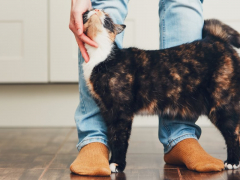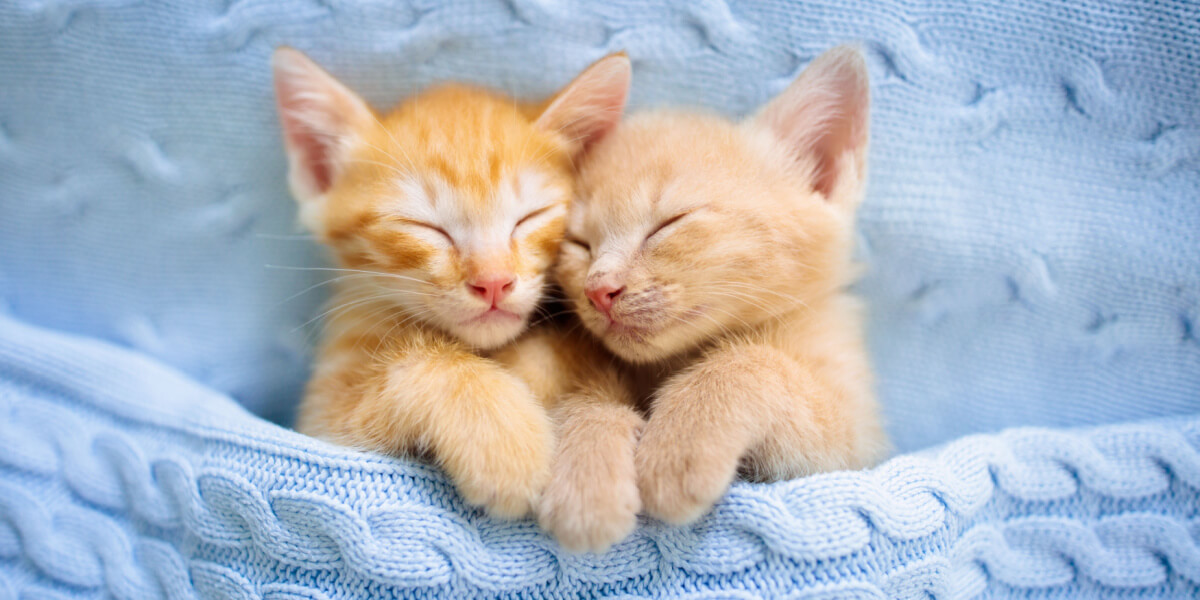
Cats experience puberty, just like humans do. It’s the feline equivalent of becoming a teenager and just like teenagers, those hormones can go haywire!
Key Takeaways
Cats go through puberty from as early as 4 months of age, although it usually occurs around 6 months of age.
Puberty is the period of time when a cat becomes sexually mature and is able to reproduce.
Neutering your cat before they reach puberty reduces the risk of unwanted pregnancies, and undesirable behaviors such as urine spraying, and has several health benefits.
At What Age Do Cats Reach Puberty?
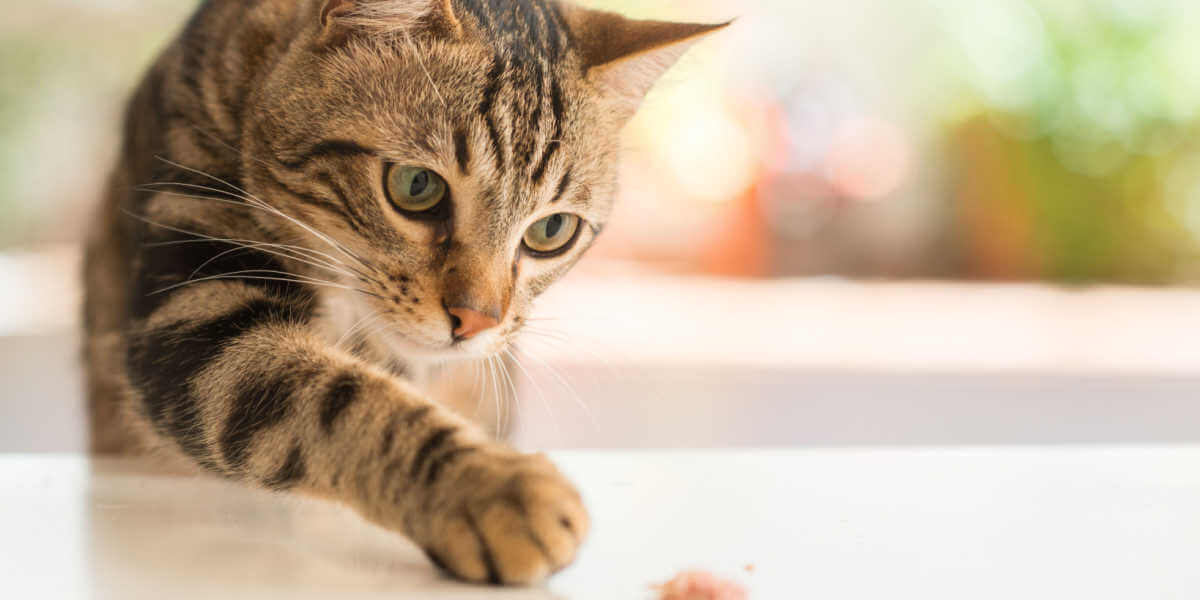
Puberty is the time period in which cats reach sexual maturity.
Puberty can occur in cats from just 4 months of age which might seem young, but from this point in their life, they are capable of reproducing. It begins when they start to produce sex hormones such as progesterone, estrogen, and testosterone.
Also Read: Sexing Kittens: How To Determine The Sex Of Your Kitten?
These hormones play important roles in a cat’s behavior, appearance, and reproductive ability. The pubescent period in a cat generally lasts around 4-6 months.
Female cats usually reach sexual maturity and start coming into heat between 6 and 12 months of age whilst male cats tend to become sexually mature between 5 and 7 months of age.
However, both females and males can reach sexual maturity from as young as 4 months of age. Some large breed cats such as the Norwegian Forest and the Maine Coon often mature later and only become sexually mature at around 9-12 months of age.
Also Read: Do Cats Enjoy Sex?
What Behavioral Signs Indicate Puberty in Cats?
Whilst the physical signs of puberty that alter appearance are not as pronounced in cats as they are in humans, the behavioral changes that occur in both male and female cats can be more obvious. Your cute little kitten is becoming the feline equivalent of a teenager.
Signs and Symptoms of Puberty in Male Cats
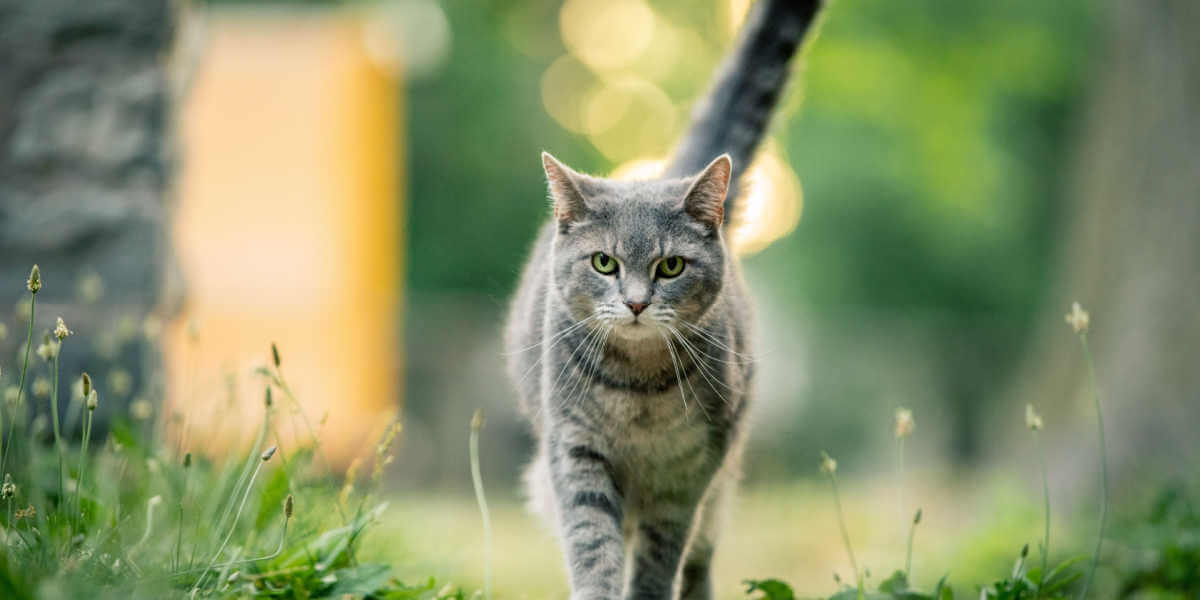
Male cats going through puberty may start to roam further from home, searching for potential mates.
Pubescent male cats start to produce stronger-smelling urine that enables them to scent-mark their territory. This is often done by spraying urine against vertical surfaces which can be particularly unpleasant when it happens in your house.
Male cats with access to the outdoors will start to roam further from home than they usually would, in an attempt to find a mate. They are also more likely to fight with other male cats due to the increasing levels of testosterone.
Over time, if male cats are left unneutered, they also develop some physical changes in their appearance such as wider cheeks, larger testicles, and thicker skin.
Also Read: Why Do Male Cats Have Big Heads?
Signs and Symptoms of Puberty in Female Cats
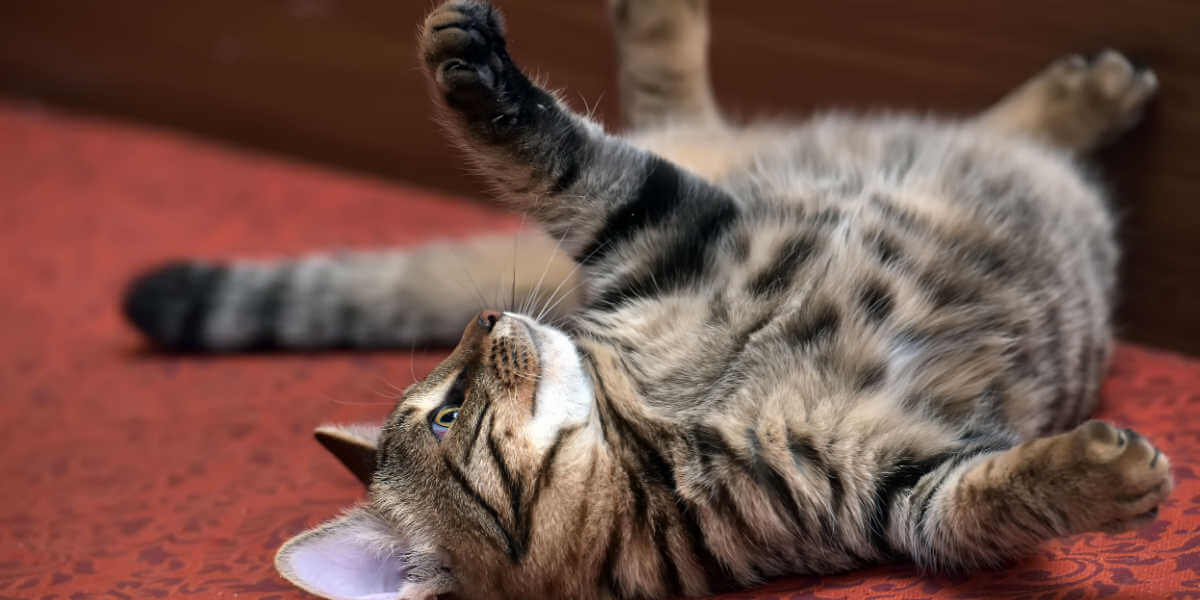
Female cats going through puberty may become more affectionate, rubbing against you and rolling around on their backs.
As female cats reach puberty and sexual maturity, they will start to call for a mate. This can involve loud crying or yowling frequently which can sometimes be misinterpreted by novice owners as a cause for concern that their cat is sick or in pain.
Pubescent female cats can often become more affectionate and needy with their family members. They might rub against them more frequently than usual, demanding attention, and they might roll around on the floor a lot. They sometimes lie on the floor with their bottom and tail sticking up in the air which demonstrates to male cats that they are ready to be mated.
If they are stroked along their back, they often arch their spine and raise their bottom in the air whilst gently ‘treading’ with their back feet. Some female cats will also spray urine onto vertical surfaces in the way that sexually mature male cats do, or they might urinate more frequently than normal. This is their way of attracting a tom cat (unneutered male cat) to mate with.
Also Read: 7 Reasons Your Female Cat Is Meowing A Lot Suddenly
The Feline Estrus Cycle
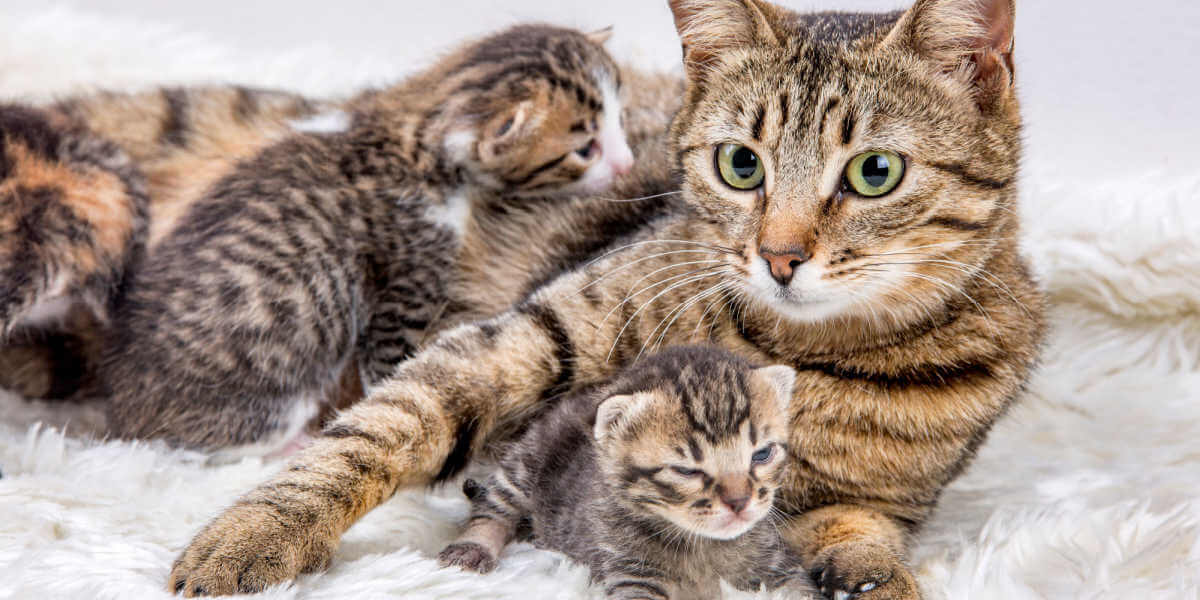
Female cats can start their reproductive cycle and successfully mate from around 4 months of age.
An unneutered female cat (queen) demonstrates these behaviors when they are in estrus or ‘in heat’. An estrus cycle (heat cycle) consists of several stages, one of which is estrus when the female is receptive to males for mating. Estrus in cats usually lasts for around 5-10 days at a time.
Also Read: Why Do Cats Scream When Mating?
How Often Does A Female Cat Come Into Heat?
Female cats have multiple estrus cycles during the breeding season and so they’re referred to as being ‘seasonally polyestrous’. If a queen is not mated during estrus, she will go out of heat for a few days before returning to being on heat again. On average, a full estrus cycle in a cat lasts for about 2-3 weeks although it can last anywhere from 1-6 weeks.
What Stage Of Estrus Can A Cat Get Pregnant?
A female cat can get pregnant at any time whilst she is in heat. Cats are induced ovulators which means that the act of mating with a tom cat causes the ovaries to release eggs. Cats can mate many times within a short period and sometimes with different tomcats. This means that multiple tomcats can father different kittens within the same litter.
Also Read: How To Tell If A Cat Is Pregnant: Labor Signs, Behavior And Timeline
Should I Neuter My Cat?

Consider neutering your cat to prevent unwanted pregnancies.
Neutering a female cat is referred to as spaying and neutering a male cat is termed castration. Neutering helps to avoid any accidental matings and subsequent unwanted litters of kittens.
Do Neutered Cats Go through Puberty?
Neutered cats generally exhibit reduced or diminished behaviors and physical changes associated with sexual maturity. It also reduces the chances of unwanted behaviors associated with puberty such as urine spraying, increased vocalization, and fighting. Castrating your male cat will reduce the risk of him roaming as far from home which in turn reduces his likelihood of being involved in a road traffic collision or going missing.
There are also health benefits to neutering your cat such as a reduced risk of mammary cancer and pyometra (a life-threatening infection of the uterus) in female cats.
Also Read: How Much Does It Cost To Spay Or Neuter A Cat?
When Should I Get My Cat Neutered?
Most veterinarians will advise neutering your cat before they reach puberty at around 4-6 months of age. Cats have usually reached the required size and weight for surgery by this age although cats can often be safely neutered much younger than this. If your cat is a late-maturing breed, your vet might suggest delaying neutering by a few months.
Female cats can become pregnant from their very first estrus cycle at around 6 months old (although sometimes from 4 months old), so early neutering is particularly important if you have a female and a male kitten. Cats mate indiscriminately which means that a brother will mate with his sister, or a mother cat will mate with her son. Talk to your veterinarian about the best time to neuter your cat.
Summary
Cats do go through puberty and it can occur from as young as 4 months of age, although more typically occurs around 6 months of age. Many behavioral signs can indicate your cat has reached puberty such as urine spraying, increased vocalization, and fighting, amongst others.
Talk to your veterinarian about neutering your cat before puberty to prevent these unwanted behaviors and reduce the risk of unwanted pregnancies and other health problems later in life.
Also Read: New Cat Owner Checklist
Frequently Asked Questions
What are the signs of cat puberty?
There are many signs that your cat has reached puberty. These include behaviors such as urine spraying, increased vocalization, and increased affection. Male cats are more likely to fight with other male cats and roam further from home in an attempt to find a mate.
Do neutered cats still go through puberty?
Neutering your cat prevents the development of signs associated with puberty such as behavioral changes and in male cats, wide cheeks and thick skin. If a female cat is neutered before puberty, then she will not come into heat and will not demonstrate the behaviors associated with this.
How do I know if my male cat is going through puberty?
Male cats that have reached puberty will start to produce stronger-smelling urine and may start marking their territory by spraying their urine onto vertical surfaces, often in your house! They will usually start to stray further from home and may start fighting with other male cats.





